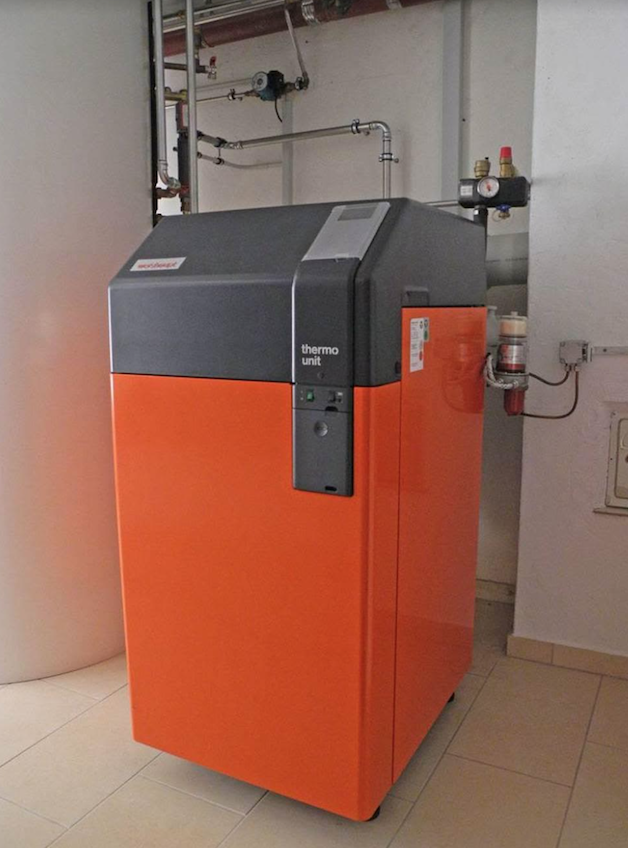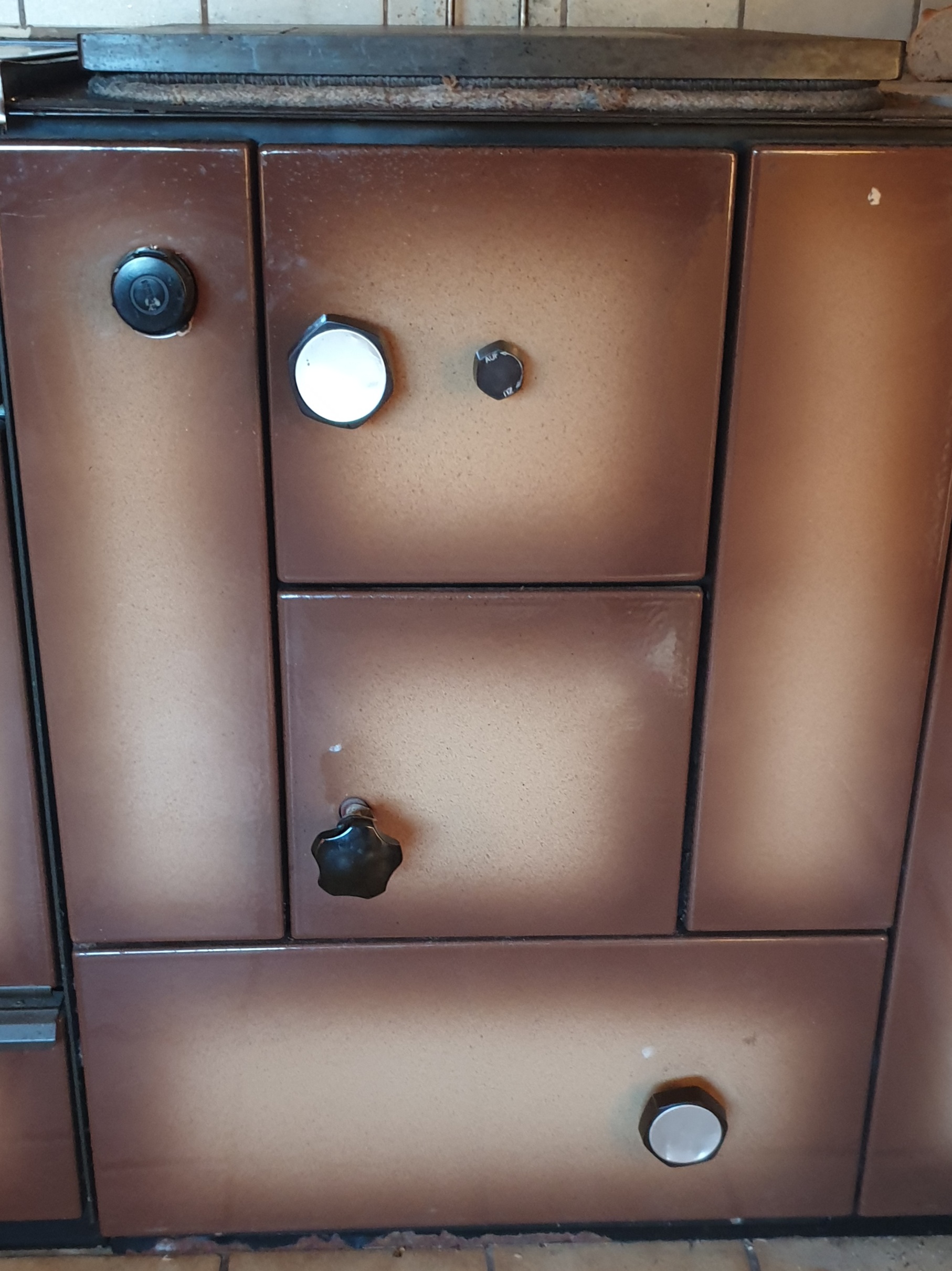We have an oil heating from weishaupt.
Oil condensing technology allows particularly economical and environmentally friendly use of oil as a fuel. Weishaupt condensing boilers convert the fuel into comfortable heat - simply and efficiently. Ideal for modernizing old oil heating systems, suitable for a wide range of buildings.

Link:
www.weishaupt.de [weishaupt.de]
At home we heat with a geothermal probe. This type of heating is very new and extremely environmentally friendly. You also need less energy for this type of heating.
Here are a few more facts:
Low heating costs
A heat pump consumes 3x less energy than an oil heating system and basically has the lowest operating costs compared to other heating systems.
Without CO2 emissions
The heat pump draws heat from the environment and releases it within your own four walls. 100% sustainable, 0% CO2 emissions.
100% Independent
No more need for heating oil or the chimney sweep. A heat pump in combination with solar power is 100% independent of external resources.
Low maintenance & durable
Heat pumps require hardly any maintenance and have an average service life of 20 years.

When we moved into my house we changed the heat source from oil heating to geothermal heating. We use geothermal probes in combination with heat pumps to heat our single family home. When they build the new heat source they had to go to dephts of 250 meters.
This energy we do not just use to warm our house we also use it to heat our water. My mum wanted this type of heating, because it is extremely environmentally friendly and you also need less energy for this type of heating.
The energy potential is enormous: 99% of the earth is warmer than 1000 °C. And geothermal energy also has many advantages in terms of environmental friendliness: no burning of fossil fuels and thus no harmful emissions.

We heat our house with oil. As many people know, it is unfortunately not very environmentally friendly. This is due to the high pollutant emissions that occures as soon as the heating oil is burnt for heat. We therefore intend to replace our heating system in the near future, but we are not yet sure what to do. It's also a bit more complicated because all the neighbours have to agree to the new idea.

Our heating source is the geothermal heat pump. Geothermal heat pumps, sometimes referred to as GeoExchange, earth-coupled, ground-source, or water-source heat pumps, have been in use since the late 1940s. They use the constant temperature of the earth as the exchange medium instead of the outside air temperature.
As with any heat pump, geothermal and water-source heat pumps are able to heat, cool, and, if so equipped, supply the house with hot water. Some models of geothermal systems are available with two-speed compressors and variable fans for more comfort and energy savings. Relative to air-source heat pumps, they are quieter, last longer, need little maintenance, and do not depend on the temperature of the outside air.
My father told me, that for our house they drilled down 102 meters in the ground, which is very impressing.

Livia
Sadly, our heating source is very energy-consuming and not sustainable, as we are heating with oil. Ever so popular and cheap, oil heating has been around since the second world war. However, it's a fossil fuel and therefore not renewable. On top of that, the process of creating heating oil creates tons of CO2 with all the drilling and refining. It's an environmental mess.
I was not able to get access to the heater itself, but I was able to photograph the control unit. I am sorry for the image quality, but it's extremely moisty in there.

Lukas Wyss
We heat with a heat pump. Heat pumps extract natural energy from the earth, air or water and thus significantly reduce your heating costs.

Picture 1: Heat pump
Why is a heat pump worthwhile?
- Independence
The heat pump makes you independent of fluctuating [1] oil or gas prices
- Low heating costs
You save up to 75 % on fossil fuels
- Flexibility
You can enjoy comfortable domestic heating [2] as well as optional hot water and domestic cooling [3], expand your heating system to a hybrid system and integrate other renewable energies if you wish.
- Environmentally conscious
They produce up to 50% fewer emissions
- Comfort
Heat pumps require less maintenance [4]
How does a heat pump work?

Picture 2: Heat pump function
Vocabulary
[1] schwankende
[2] Wohnwärme
[3] Wohnraumkühlung
[4] Wartung
In our cellar we have a heating and oil storage room (Heizungsraum und Heizöltank). Almost all the homes in our neighbourhood use oil for heating. Its sadly not the most eco-friendly way of heating.
We also have underfloor heating in most rooms in our house like the kitchen and bathrooms. This is very practical because it saves lots of space. (You don’t have a big heating unit in the centre of the room).
In the cold Winter months, we heat our house with a small wooden oven. It gives a nice cosy winter cabin feel. You’d be surprised at how much heat can be produced in this small fireplace (see picture below). We use local wood to support climate friendly transportation emissions.
More...
Because we own an old house we heat it with wood. We have a wood-fired heating system.

Picture 1: Oven
The wood we need is from our own forest. My father fells [1] the trees and cut them into pieces of firewood which fit in our oven.More...
I live in an apartment building, which is heated geothermal. It's renewable but rather expensive to install. It's also hard to keep the water warm, because the maximum heat reached is lower compared to other energy carriers.
Gas heating systems have been around for a very long time and have been used for years. Natural gas is often used.
As soon as a building is too cold, this is reported to the boilers. There, gas burns. This produces heat, which is then transferred to the radiators with water. The radiators warm the rooms and then the cold water flows back and it is heated again.